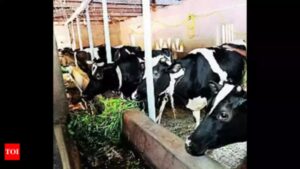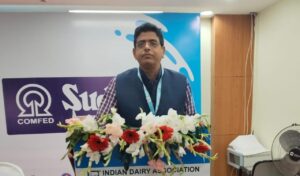
New Delhi, June 8 (UNI) In observance of World Food Safety Day, the National Institute of Food Technology Entrepreneurship and Management, Kundli (NIFTEM-K), under the Ministry of Food Processing Industries (MoFPI), hosted a webinar titled ‘Protective Efforts and Rapid Food Emergency Control and Testing’ (PERFECT).
In his keynote speech, Dr. Iddya Karunasagar, an International Food Safety Consultant for FAO, WHO, and ADB, and Senior Director (International Relations) at NITTE University, Mangalore, discussed the challenges and actions necessary for managing foodborne outbreaks. He called for preparedness and mock exercises to sensitise agencies at all levels for effective outbreak mitigation strategies.
Dr. Amit Sharma, Director of Food Safety at FSSAI, highlighted the importance of government-academia collaboration, such as between NIFTEM, ICMR, and ICAR, to detect and prevent foodborne outbreaks. He also mentioned various FSSAI initiatives aimed at strengthening the country’s food emergency response system.
Naresh Kumar, Application Specialist at Biomerieux, pointed out that cumbersome and time-consuming microbiological testing procedures are significant obstacles to ensuring food safety. He showcased rapid diagnostic tools and technologies developed by Biomerieux to enhance food safety.
Dr. Kathiravan Krishnamuthy, Associate Teaching Professor at the Illinois Institute of Technology, Chicago, USA, advocated for the use of novel non-thermal techniques to combat spoilage while retaining the nutritive value and sensory properties of treated food. He recommended non-thermal processes like Pulsed Light and Cold Plasma for the food industry to preserve nutrients and extend the shelf life of food products.
Dr. Neetu Taneja, Assistant Professor at NIFTEM-K, presented her team’s research on biofilm formation by microorganisms like E. coli and Salmonella, which enhances their long-term survival. She discussed the prevalence of food-borne pathogenic strains in Indian dairy and meat products, urging improved food hygiene practices and the use of phytochemicals to mitigate foodborne pathogens.
Dr. P. Murali Krishna, Professor at NIFTEM-K, discussed the development of nanosensors for on-site food safety detection and the role of IoT and electronics in food safety. Dr. Sarvanan Chakravarthi, Assistant Professor at NIFTEM-K, shared his group’s work on mitigating food contamination, particularly acrylamide detection in fried and baked foods, and methods to reduce and eliminate them.
The webinar concluded with a statement emphasising that food safety is a shared responsibility, urging all stakeholders to work together to ensure safe food for all.






